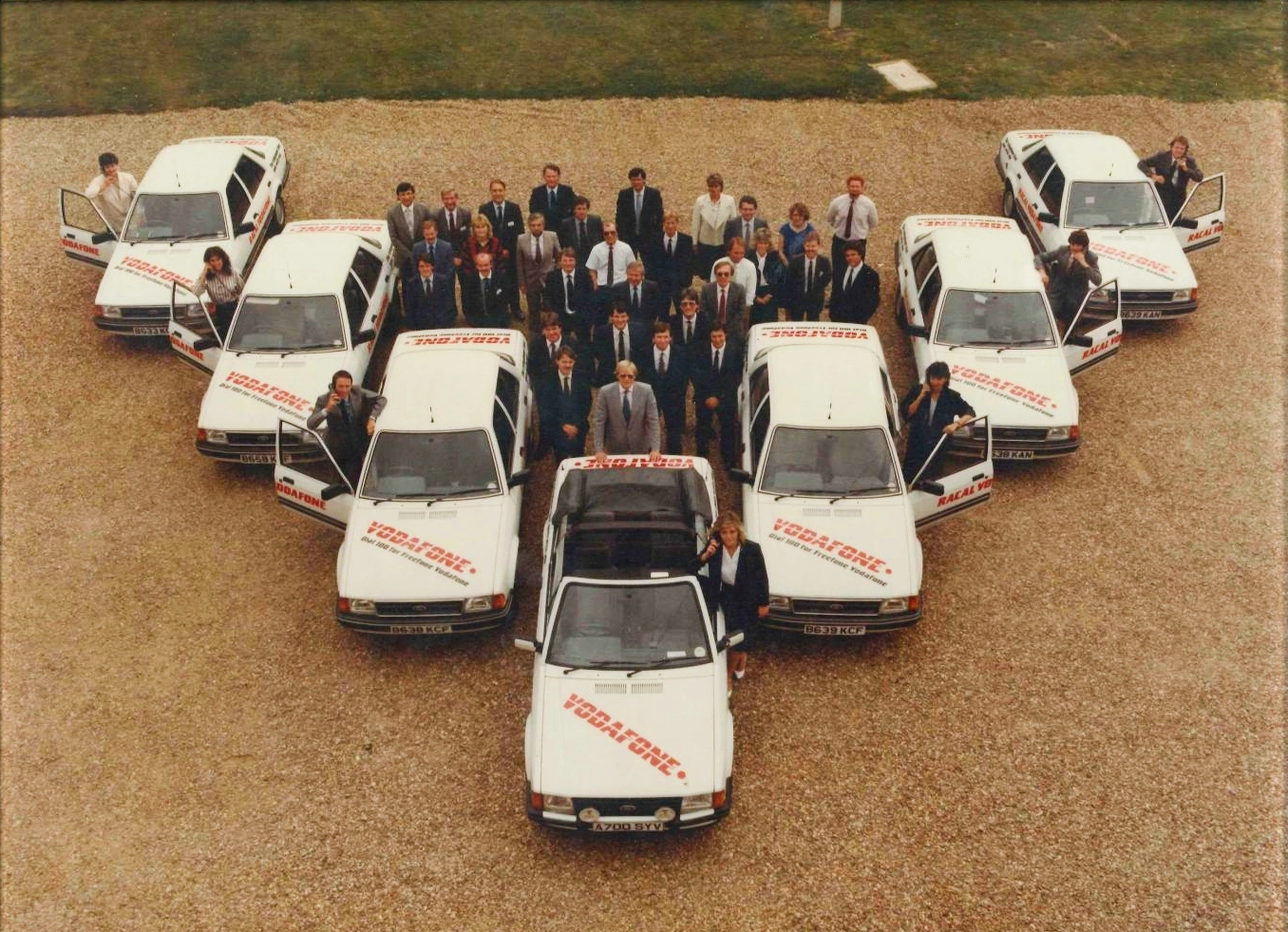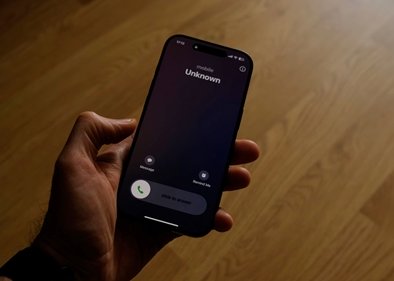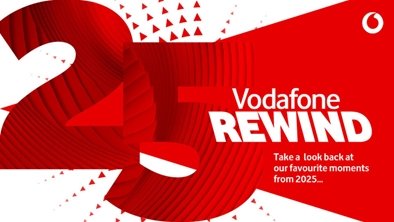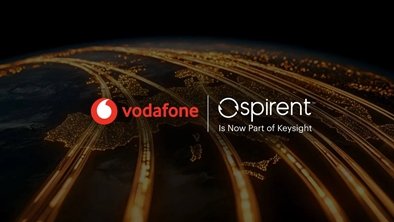Great startups don’t just need great technology – they need the right people to sell the dream. Ivan Donn signed up the very first Vodafone customer 35 years ago, even though the network had yet to be built – and the barely portable phone had only 30 minutes talk time per charge.
Ivan Donn joined Vodafone aged 23, part of the first intake of salespeople recruited to start a two-week training course on how to sell the future.
Employee number 101, Ivan stayed at the company for 20 years, rising to the role of Director of Commercial Partnerships. Today, there are almost 100,000 employees around the world.
“I was brought on as a trainee because I didn’t have any solid sales background,” he says.
Despite this, Ivan landed the company’s first order before even finishing the training course – a deal which made company history.
Unlike today, where customers can visit websites and retail stores to compare mobile phones, subscriptions and accessories, it was all very different in 1985.
“There was nothing to show other than brochures and tariffs, so it was all sold off paper and that people trusted that we would deliver what we said we would,” says Mr Donn.
“You would show them photographs of the equipment they could choose, what our coverage predictions were going to be and cost.
We had completed enough to know how to fill out an order form, which was all that mattered. People knew we were going to launch the service.
Whether it was January 1st or March 1st, they just wanted the technology – and I knew a number of people who were keen – one of whom, I’d contacted to let him know that I had got a job with Vodafone, and he had said to me ‘look, when you are in a position, come and see me, and I’ll place an order. So, that weekend, I went to see him and on the Sunday, he signed that first order.”
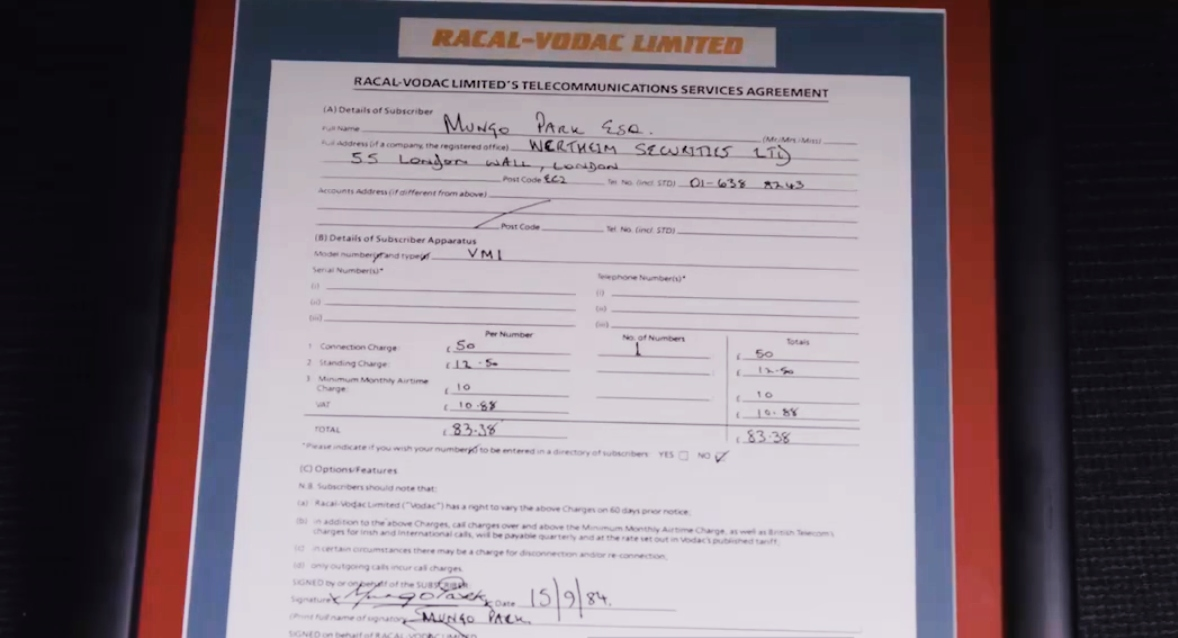
Vodafone's first order made by Ivan Donn. Picture credit: Vodafone Group
“I went back to our training centre in Heckfield and handed my sales director the signed contract in an envelope, and he looked a bit surprised.”
“I think he maybe was thinking that I was about to resign or something halfway through the course. And he pulled out this order, and he saw the cheque and his eyes just lit up and he just went completely berserk, leaping up and down with excitement.
“The next morning, there was a collection of bleary eyed people getting ready for week two of a very arduous training course, and Steve had had the order put onto a transparency on the overhead projector, which was the state of the art those days.”
“He reopened the course by saying ‘On Sunday, history was made.’ And he then flicked on the overhead projector, lamp on, and up came my order on the screen.”
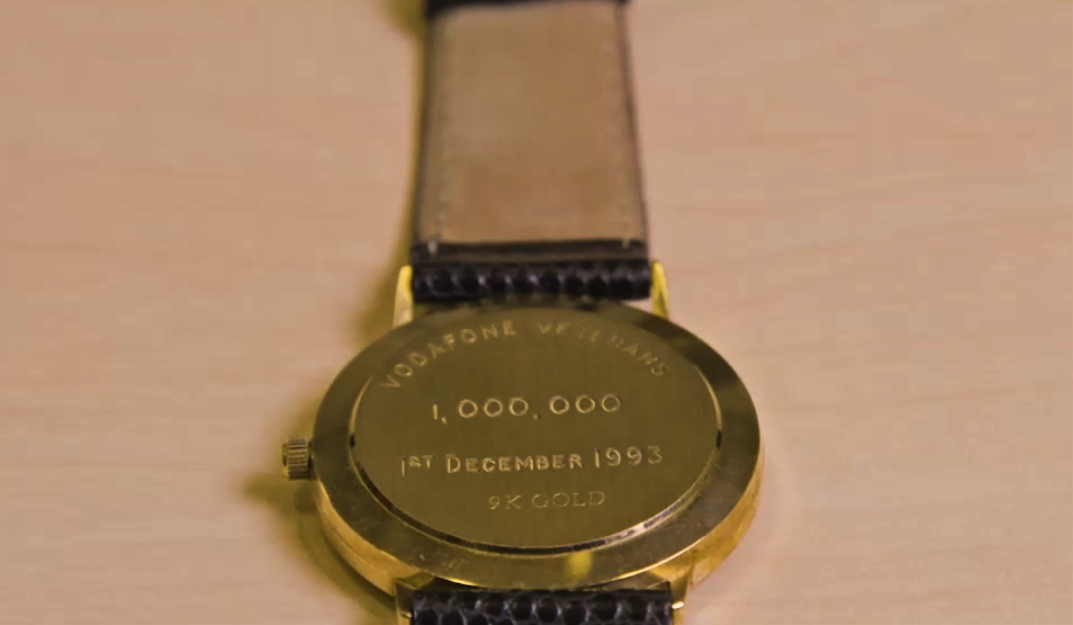
The Vodafone veterans one million watch, gifted to 57 employees when the company reached one million customers. Picture credit: Vodafone Group
From Racal to Vodafone
Vodafone was spun out of Racal Telecoms in the late 1980s.
“The name Vodafone was derived from voice and data (voda). And so it was always part of our mandate that we were going to bring data services to the market.”
The first chairman was Sir Ernest Harrison, who also received the first call ever made on a UK network. The caller was Ernest’s son who used the 11lb Vodafone Transportable VT1 mobile phone in Parliament Square in London. Sir Ernest answered from his New Year’s Eve party at home in Surrey and history was made.
“Sir Ernest was incredibly excited about the whole Vodafone opportunity, so he gave it all the oxygen it needed to be successful,” says Mr Donn.
“He was a very personable individual, who liked to come and talk to everyone in the company, just to hear what they had to say.”
Back in the 80s, if Sir Ernest was driving to work and he happened to see anybody walking in the direction of the office, he’d pull over and drop them off too.”
From launch, it took eight years and eleven months for the company to reach a massive milestone – reaching one million customers in December 1993.
“When we did, the company gifted every employee who had stayed at the company since its launch in 1985 a gold watch. There were 57 of us.”
The watch was engraved with ‘Vodafone veterans one million,’ and the date.
“I’m very lucky to have one of these,” he says.
But milestones don’t just make themselves. We asked Mr Donn about the spirit of Vodafone in the early days, and how it allowed the company to grow into the global business it is today.
“Well we were a group of people – rather a new family – that were creating a phenomenal success together. We felt as though we were all on a mission together, and all depended massively on one another to deliver this extraordinary telecommunications business,” he says.
“There was a kind of kinship between everybody, and this sense of creating something quite remarkable which grew to becoming number one in the FTSE within a number of years.”
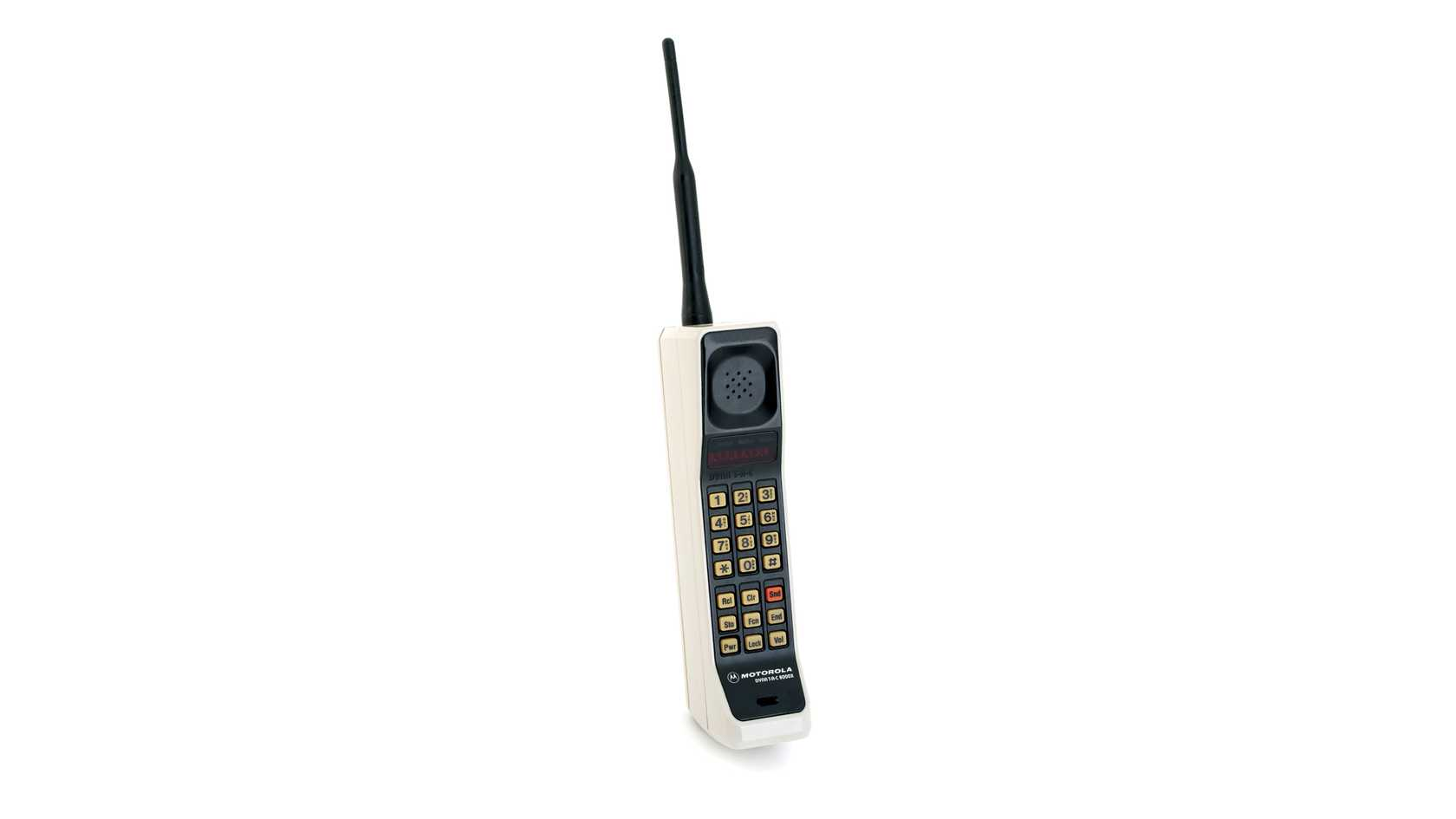
The Motorola 8000X weighed 850 grams. Picture credit: Chris Willson/Alamy Stock
Old fashioned ways
It’s not just the company that has come a long way, but also the technology.
“Back in those days, it would have taken a building the size of a large office to store even one gigabyte of data, and a huge amount of power. It would have taken about 40 days to send a gigabyte at those speeds, and cost £8,000!”
The Motorola 8000X – famously used by Gordon Gekko in Wall Street – was the first truly ‘mobile’ device the company sold, weighing a whopping 850 grams. But considering most other phones in the market at the time weighed several kilos, this ‘light-weight’ mobile was truly groundbreaking.
“The batteries were about £100 a throw too. I used to sell extra batteries as one would only give you 30 minutes of call time!”
“But I have to say, it was an excellent piece of equipment in its day. The clarity of the calls and the speed of the connection really did make people sit up, listen and realise just how powerful this technology was.”
Asked about his proudest moment in his 20-year Vodafone career, it’s not the first customer story – but his role in influencing Vodafone’s culture of promoting and supporting talent.
“Because of all the Racal people running the business in the early years, we inherited a culture meaning you couldn’t become a senior manager unless you were 30 years old,” he says.
“That seemed particularly bizarre, because some of the entrepreneurs who were successful for us in the service provisions of mobile phones were under 30.
“I went to see Gerry Whent, our CEO, because I was doing a senior manager’s job for some time, very successfully, although I was still in my twenties.Ivan Donn joined Vodafone in 1984 as employee number 101. Within months he’d made history
“He reflected on it, and a few months later, he made me a senior manager aged 28, and at that point the 30 year-old rule died forever for everybody, male or female.”






















